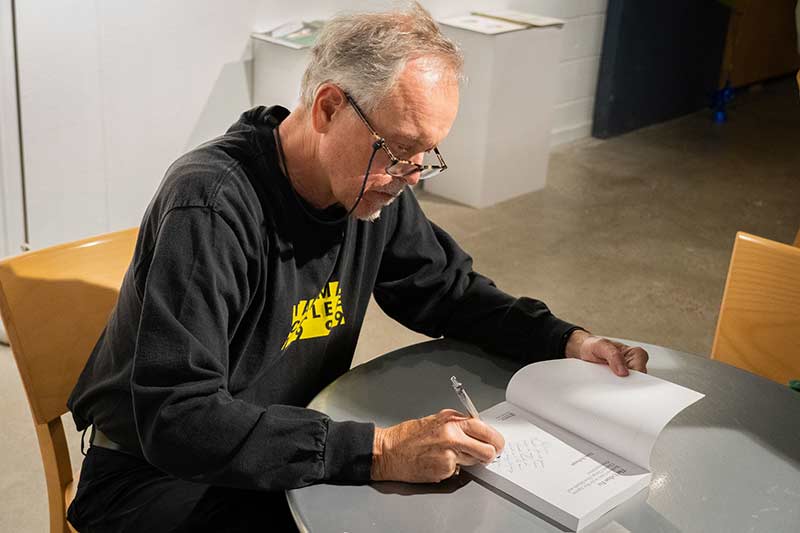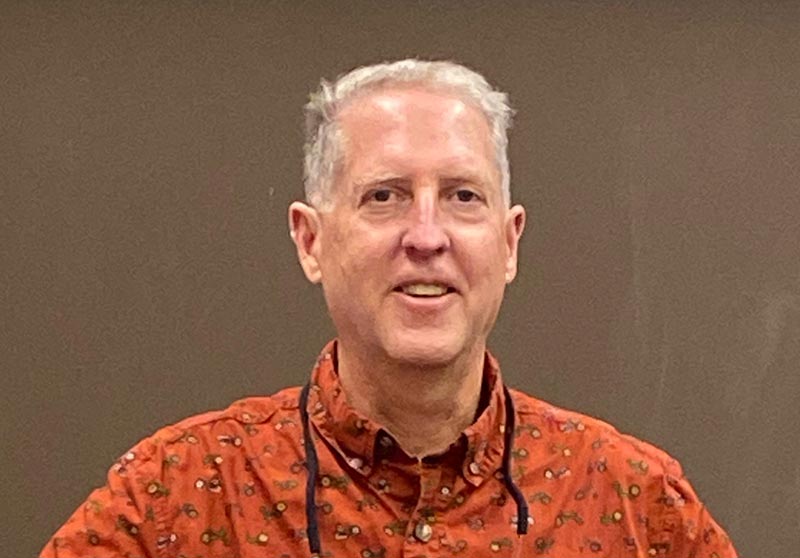
In Memory of Douglas Kelbaugh, Professor Emeritus of Architecture and Urban and Regional Planning and Dean Emeritus of Taubman College
Douglas Kelbaugh FAIA FCNU, professor emeritus of architecture and urban and regional planning and dean emeritus of Taubman College, died on February 18, 2023, at 78.
Kelbaugh worked at the forefront of sustainable architecture and urban planning. He completed his undergraduate degree and Master of Architecture at Princeton University, graduating in 1972. In 1975, his passive solar house in Princeton was the first to utilize a Trombe Wall and was one of many pioneering and award-winning passive solar buildings designed by his firm Kelbaugh and Lee.
In a 2019 interview with Michigan News, he said, “I had read an article in an architecture magazine about a solar test cell, and so I thought, ‘Let’s try that.’ That was the impetus for a group of architects and myself to start the passive solar movement. It was pioneering at the time, but since most of the work was being done in the Southwest, it was unique to build a passive solar house in New Jersey. That house became extremely well published, and suddenly I was a passive solar architect with a national reputation.”
In 1985, Kelbaugh was named chair of the department of architecture at the University of Washington. During his time there, he expanded his focus from the environmental impact of individual buildings to the role of cities in energy depletion. One of his charrettes was published as The Pedestrian Pocket Book, which explored the value of high-density, pedestrian-friendly, transit-oriented development; many architecture schools adopted this work into their curricula.
Kelbaugh came to the University of Michigan in 1998 as the dean and professor of architecture and urban planning. Shortly after that, the college received the transformative gift of $30 million from A. Alfred Taubman, the most significant contribution to a school of architecture and planning, and the school was renamed Taubman College of Architecture and Urban Planning. After a two-year leave to work as executive director of Design and Planning for a development company in Dubai, he returned to the University of Michigan, where he continued to teach until his retirement in 2019. Students in his courses often nominated him for teaching awards. In one of these nominations, a student called him an “inspiring personality, great orator, and teacher.” Another student said, “Attending his classes and knowing him is an absolute delight.”
As dean of Taubman College, he grew the college’s enrollment and financial endowment and increased faculty diversity. He also instituted five-day charrettes in Detroit, where faculty, staff, and students would move to the city and work with industry professionals on a neighborhood or district development site. At the conclusion of the charrettes, teams would present ideas for the assigned location to the public. This work eventually led Kelbaugh to help develop the U-M Detroit Center, which focuses on the mutual enrichment of the university and Detroit through service, education, research, and cultural exchange.
His legacy at Taubman College also includes starting the Master of Urban Design (M.U.D) program, a three-semester post-professional degree invested in conceptualizing the complex global processes of urban transformation. Along with his wife, Kathleen Nolan, he subsequently gave an endowed scholarship to support M.U.D. students and an endowed gift to support an annual lecture on urban design, the Kelbaugh Lecture.

Kelbaugh signing copies of his book The Urban Fix: Resilient Cities in the War Against Climate Change, Heat Islands and Overpopulation in 2019.
His influence stretches far beyond the University of Michigan. Throughout his career, Kelbaugh served as a faculty member or visitor at nine schools of architecture in the United States, Europe, Japan, and Australia, including the University of Washington, where he chaired the Architecture Department before coming to Michigan. He co-chaired many national and international conferences on energy, urbanism, and design, spoke to hundreds of professional and community groups, and wrote and edited countless articles and books on sustainable design. In 2016, he was recognized with the Topaz Medallion for Excellence in Architectural Education from the American Institute of Architects and the Association of Collegiate Schools of Architecture, the highest award given to an educator by the two organizations.
Kelbaugh is survived by his wife, Kathleen Nolan, son, Casey Kelbaugh, and daughter, Tess Kelbaugh.
Kelbaugh’s contributions to the field of sustainable architecture and urban planning, the Taubman College community, cities, and the education of students will continue to create a positive impact in the world for years to come.









